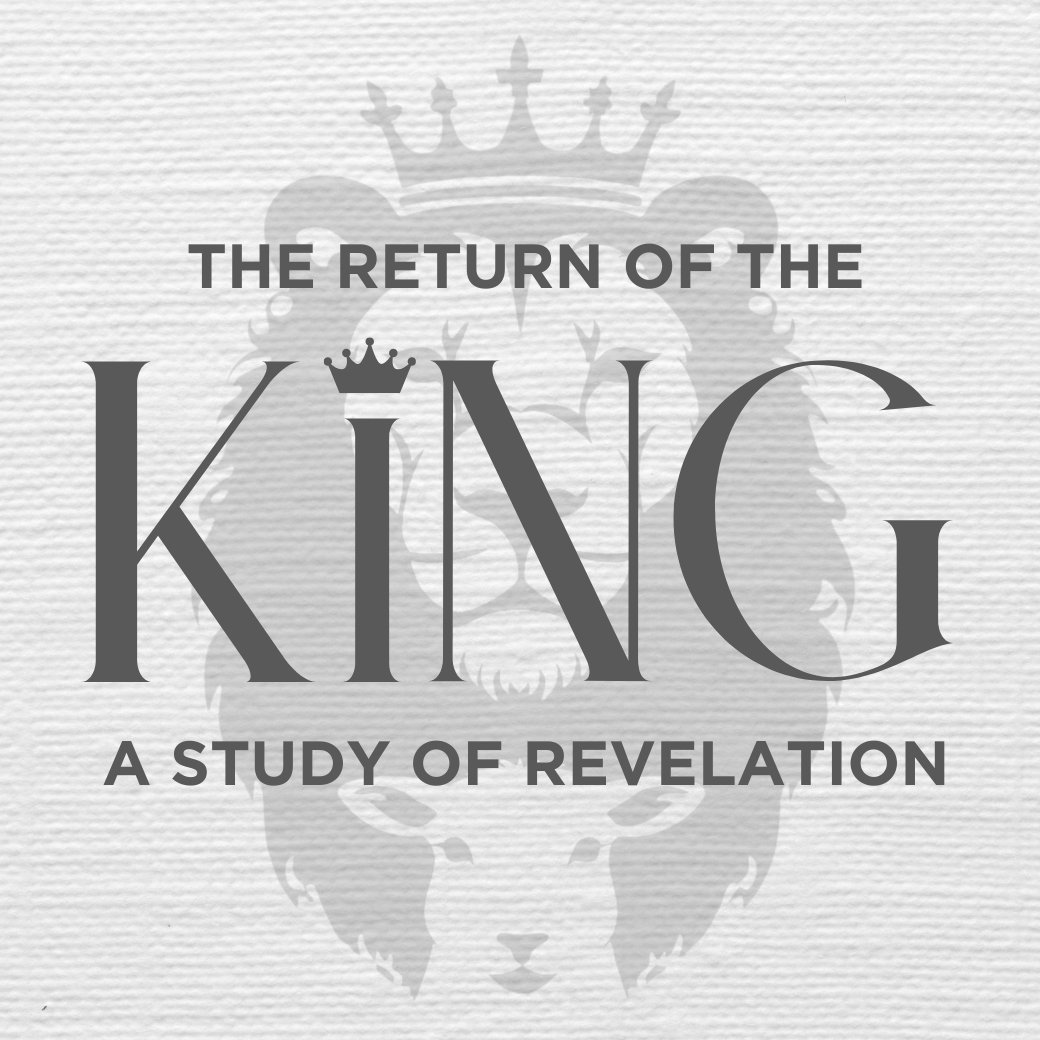Discover Sunday Teaching
Sunday Teaching

696 Episodes
Reverse
The seven bowls of God's wrath in Revelation 15-16 present us with one of Scripture's most challenging yet essential truths: God's perfect justice must ultimately address evil. These final plagues mirror the Exodus story, reminding us that the same God who delivered His people from Egyptian bondage will one day deliver creation itself from the tyranny of sin. What makes these passages so profound is their revelation that God's wrath doesn't contradict His love—it flows directly from His holiness and perfection. The imagery is stark: painful sores, seas turned to blood, scorching heat, and impenetrable darkness falling upon those who bear the mark of the beast. Yet even amid judgment, we see glimpses of mercy—repeated mentions that people 'did not repent' suggest opportunities were given. For us today, this passage calls us to three vital responses: stay alert for Christ's return, don't downplay the reality of God's holy wrath, and recognize the urgency of the delay we're currently experiencing. That delay isn't divine procrastination; it's grace extended, giving us time to turn to Christ and share His gospel with others. The most beautiful truth here is that those who belong to Christ need not fear these bowls of wrath—Jesus already drank the cup of God's judgment on our behalf at Calvary. What's poured out on us instead is love, mercy, grace, and forgiveness.
The numbers aren’t great. Stats show that somewhere around 66% of young people who grow up in the church walk away when given the chance. It’s not uncommon for the older people in church to look at the young adults, youth group, and children’s ministry and proclaim that they are the church of the future! What if part of the reason they’re leaving is because we miss the important fact that they are actually a part of the church NOW? How can we be a part of making this a reality for the young people God has blessed us with? May we move from rhetoric to reality as we seek to pass on our faith TO THE NEXT GENERATION.
Revelation chapters 12-14 pull back the curtain on spiritual warfare, revealing truths that shape our daily existence whether we realize it or not. We encounter a cosmic drama: a woman giving birth to a child destined to rule the nations, a dragon waiting to devour that child, and a war in heaven resulting in Satan's defeat and expulsion. This isn't ancient mythology—it's the unseen reality behind Jesus's birth, death, resurrection, and ascension. The dragon, identified as Satan, the ancient serpent and deceiver, has lost his place as accuser before God's throne. Because of Christ's sacrifice, those who believe in Jesus are declared righteous, leaving Satan with no grounds for accusation. Yet he hasn't surrendered; instead, he's redirected his fury toward us—the offspring of the woman, all who follow Christ. The passage introduces us to counterfeit religion through the imagery of beasts: a counterfeit trinity that mimics Father, Son, and Holy Spirit, demanding worship and marking followers. This is where we discover that Satan's primary weapons are accusation and deception, deployed through counterfeits—taking good gifts God intended for us and twisting them just enough to draw us away from Him. Love becomes lust, work becomes idolatry, and truth becomes almost-truth. The call for us is patient endurance, holding fast to the blood of the Lamb and the word of our testimony, valuing the gospel even above our own lives. There is no neutral ground in this spiritual battle—we're either marked by the Lamb or marked by the beast, living in one story or the other.
We find ourselves in the middle of a cosmic battle that has been raging since the beginning of time, and Revelation 12-14 pulls back the curtain to reveal the origin story of our own lives. This passage shows us a woman clothed with the sun, a dragon waiting to devour her child, and ultimately the birth of the Messiah who defeats Satan not through military might but through sacrificial love. The dragon is cast out of heaven, not because of our strength, but because of Christ's victory on the cross. What makes this so powerful for us today is the realization that we don't fight for victory, we fight from victory. The battle has already been won. When we face accusations, when life feels impossibly hard, when evil seems relentless, we overcome the same way Jesus did: by the blood of the Lamb and by the word of our testimony. This isn't just ancient history or future prophecy; this is the reality of our daily existence. We are marked by God, sealed by His Spirit, and no matter what beasts or empires demand our allegiance, we belong to the One who has already crushed the serpent's head. The question becomes: whose mark do we bear? Are we living as practical atheists, trusting in human ingenuity and progress, or are we following the Lamb wherever He goes?
In this powerful exploration of Revelation 10 and 11, we're challenged to consider our role as witnesses in a world that often opposes God's message. The central theme revolves around the two witnesses, which symbolize the faithful church bearing testimony to Christ. We're reminded that our calling is to proclaim the full gospel message with bold humility and prayerful dependence on God. The imagery of eating the scroll - sweet in the mouth but bitter in the stomach - emphasizes the dual nature of God's word: it's a message of hope and salvation, but also of judgment for those who reject it. As we reflect on this, we're encouraged to stand firm in our faith, even in the face of persecution. The parallels drawn between the witnesses and figures like Elijah and Moses remind us of the power God grants His faithful servants. This message invites us to examine our own lives: Are we prepared to be faithful witnesses, even if it means facing opposition or martyrdom? It's a call to deepen our commitment to Christ and His message, trusting in His protection and power as we serve Him in these challenging times.
In this powerful exploration of Revelation chapters 10 and 11, we're invited to delve into the mysteries of God's plan and the role of the church as witnesses. The central image of the angel with the little scroll reminds us that God's word can be both sweet and bitter - comforting yet challenging. As we consider the two witnesses, symbolizing the church, we're confronted with a profound truth: our path may involve suffering, but ultimately leads to victory through Christ. This passage encourages us to embrace our role as faithful witnesses, even in the face of opposition. It's a call to action, reminding us that there's still time to share the gospel before the final trumpet sounds. How are we using this time? Are we boldly sharing our faith, or holding back out of fear? This message challenges us to live with urgency and purpose, knowing that Christ's return is certain.
In this powerful exploration of Revelation 8 and 9, we're reminded of the profound impact our prayers can have. The imagery of our prayers, mixed with incense, triggering Christ's return is both humbling and inspiring. It challenges us to reconsider how we pray and what we pray for, understanding that our seemingly unanswered prayers may be the very catalyst for God's ultimate plan. The seven trumpets, reminiscent of Joshua's battle at Jericho, serve as both warning and grace. They reveal God's judgment on the idols we've created, yet also His mercy in not destroying everything at once. This dual nature of judgment and grace challenges us to hold these seemingly opposing concepts in tension, recognizing God's sovereignty even in chaos. As we face our own battles and uncertainties, we're encouraged to 'do the next right thing' and keep moving forward in faith, never returning to our personal 'Egypts' of past bondage.
In this powerful exploration of Revelation 8 and 9, we're confronted with the sobering reality of God's judgment against sin and evil. The imagery of seven trumpets and cosmic upheaval may seem daunting, but embedded within is a profound message of grace. We're reminded that our prayers ascend to God like incense, and He responds with righteous judgment. The limited nature of these judgments - affecting only a third of creation - reveals God's patience and desire for repentance. As we grapple with these apocalyptic visions, we're called to examine our own lives. Are we living in readiness for Christ's return? The message challenges us to turn from idolatry, immorality, and worldly attachments, urging us to grow in holiness and share the gospel while there's still time. Through it all, we're assured of God's protection for His people and His ultimate victory over evil.
In this powerful exploration of Revelation chapters 6 and 7, we're confronted with the sobering reality of God's judgment and the hope of salvation. The vision of the four horsemen and the opening of the seals reveals a world facing war, civil unrest, famine, and death. Yet amidst this chaos, we're reminded of God's justice and the ultimate triumph of good over evil. The cry of the martyrs, 'How long?', resonates with all who suffer for their faith. But the message isn't one of despair – it's a call to perseverance and trust in God's timing. The symbolic sealing of the 144,000 and the great multitude before the throne paint a picture of God's protection and the inclusivity of His salvation. This passage challenges us to examine our own faith: Are we truly sealed by the blood of the Lamb? Do we trust and treasure Christ above all else? As we face trials in our own lives, let's hold onto the promise that one day, God will wipe away every tear from our eyes.
In our exploration of Revelation 6:1-8:1, we encounter the powerful imagery of the Four Horsemen of the Apocalypse. These riders, released by the Lamb, represent conquest, war, famine, and death - realities we face in our world today. Yet, this passage reminds us that even in chaos, God remains sovereign. The martyrs' cry of 'How long?' echoes our own longing for justice, but we're called to patience and faith. As we wrestle with the concept of tribulation, we're challenged to examine our expectations of the Christian life. Are we following Christ to escape hardship, or are we marked by Him to remain faithful through trials? This passage urges us to trust in God's protection and ultimate victory, even amidst life's struggles.
In this powerful exploration of Revelation 4 and 5, we're invited to glimpse the majesty of heaven and the worthiness of God. The central image of the occupied throne reminds us that God is in control, even when our world seems chaotic. This vision challenges us to consider: Who or what is truly at the center of our lives? Are we allowing God to occupy His rightful place on the throne of our hearts? The description of the four living creatures, ceaselessly praising God, prompts us to reflect on what we 'never cease to say' through our words and actions. Are we constantly pointing to God's glory, or are we consumed by lesser concerns? This message encourages us to align our priorities with heaven's perspective, finding purpose and peace in submitting to God's reign.
In this powerful exploration of Revelation chapters 4 and 5, we're invited to glimpse the awe-inspiring throne room of heaven. The vivid imagery of God's glory, surrounded by worshipping creatures and elders, reminds us of His supreme sovereignty even in the midst of earthly tribulations. As we contemplate this heavenly scene, we're challenged to deepen our worship and live with reverence for our holy God. The central drama unfolds as only the slain Lamb - Jesus Christ - is found worthy to open the scroll of God's redemptive plan. This profound truth reassures us that despite persecution or suffering, Christ's sacrifice has secured our ultimate victory. We're called to follow His example, standing firm in faith even in the face of adversity, knowing that our present struggles pale in comparison to the glory that awaits us.
In this powerful exploration of Revelation chapters 2 and 3, we dive deep into the letters to the seven churches, uncovering timeless spiritual truths that resonate with our lives today. These letters, while addressed to specific ancient congregations, speak volumes to us about maintaining our spiritual vitality and commitment to Christ. We're challenged to examine our own faith: Have we lost our first love? Are we compromising with worldly values? Are we lukewarm in our devotion? The message is clear - Jesus sees beyond our outward appearances and knows the true state of our hearts. He calls us to repentance, offering grace and restoration. The symbolism is rich, from the 'eyes of fire' representing Christ's penetrating insight, to the 'white stone' symbolizing purity and a new identity in Him. As we reflect on these words, we're invited to open the door of our hearts anew to Jesus, who stands knocking, eager to restore fellowship with us. This passage reminds us that our faith journey is not about perfection, but about continual turning towards Christ, embracing His promises, and allowing Him to transform us from the inside out.
In this powerful exploration of Revelation 2-3, we're invited to see the church through God's eyes. These letters to seven churches offer a piercing look at our spiritual condition, reminding us that appearances can be deceiving. The message to Ephesus and Laodicea stands out - one church rich in good deeds but lacking love, the other wealthy but spiritually impoverished. This contrast urges us to examine our own hearts. Are we, like Ephesus, doing all the right things but missing the heart of our faith? Or like Laodicea, comfortable in our prosperity but blind to our spiritual needs? Christ's words cut through our self-deception, calling us to return to our first love and recognize our true condition before Him. This passage challenges us to seek authentic faith that goes beyond outward actions or material success, reminding us that true richness in God's kingdom often looks very different from worldly measures of success.








